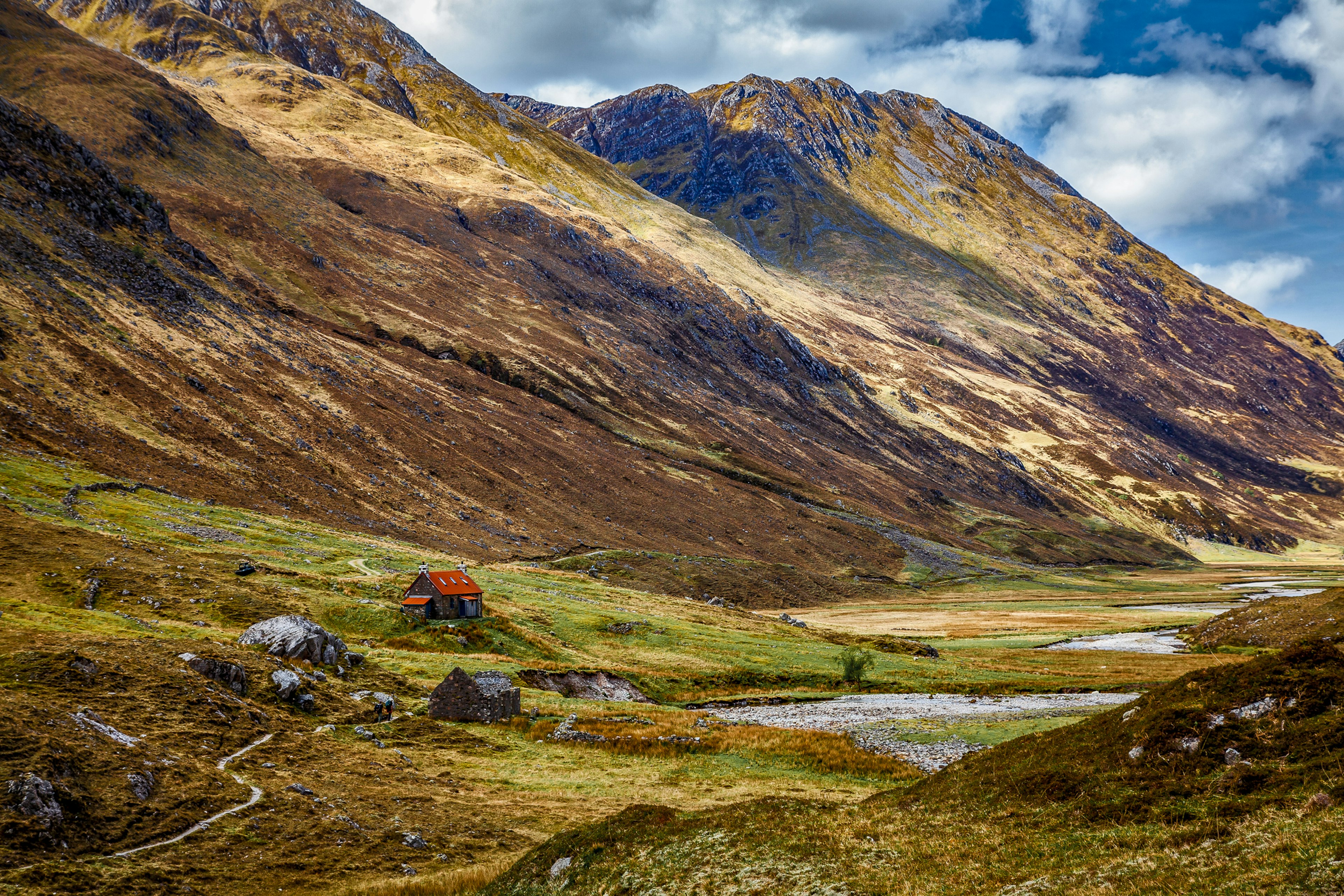
The biggest rewilding project in the UK will restore vanishing ecosystems in the Scottish Highlands

Sep 30, 2021 • 3 min read

A massive rewilding project is taking place in the Scottish Highlands ©Getty Image
A large stretch of the Scottish Highlands will return to its wild, natural state in an ambitious 30-year project that will also provide sustainable and grassroots nature-based tourism opportunities across Scotland.
The Affric Highlands project, which covers a vast area of the Scottish Highlands from Loch Ness to the west coast of Scotland, will rewild half a million acres (200,000 hectares) of land. The social and ecological movement, led by the charity Trees for Life, brings together a group of landowners, local communities and others to help restore nature and bring the land to its wild, natural state over a period of 30 years.

"With Scotland’s rewilding movement growing rapidly—and the Scottish Rewilding Alliance calling for Scotland to become the world’s first Rewilding Nation, with the rewilding of 30% of the country’s land and sea by 2030—Affric Highlands will take large-scale nature recovery to a new level, providing a catalyst for the local economy at the same time," said Steve Micklewright, chief executive of Trees for Life.
The project is the biggest of its kind in the UK and is hoped to provide a boost to the local economy, as well as opportunities for nature-based tourism. "Some of the ideas around that will be developed going forwards," a spokesperson for Trees for Life told Lonely Planet. "Affric Highlands is taking a community driven, grassroots approach. So the emphasis is on working to place the community at the centre of the discussion about how tourism should be developed in the area."

Much of the land, which covers Glens Cannich, Affric, Moriston and Shiel, is "overgrazed, treeless, denuded, drained and over-managed, to the point that little remains unmodified by humans," according to Trees for Life. Affric Highlands aims to undo the damage by planting two million native trees to bring the landscape back to its woodland state. Rivers will be given more space to flow naturally. Peatlands are being rewetted and turned into carbon-storing ecosystems. Habitats will be reconnected to facilitate wildlife movement, and work is in progress to reintroduce the critically endangered, Scottish wildcat to the area.
Read more: Back to nature: 8 rewilding projects you can visit in Europe
The project was officially welcomed by Rewilding Europe this month as the ninth member of its network of large-scale rewilding projects across Europe. Other projects include Portugal’s Greater Côa Valley; the Danube Delta in Ukraine, Romania and Moldova; Romania’s Southern Carpathians; Croatia’s Velebit Mountains; Italy’s Central Apennines; Bulgaria’s Rhodope Mountains; the Oder Delta in Germany and Poland; and Swedish Lapland.

People will have the opportunity to connect with the project directly when a former hunting estate at Dundreggan is transformed into the "world's first Rewilding Center" in 2023; and there are also opportunities for people to join Trees for Life's conservation volunteer weeks.
For more information on the Affric Highlands project, see the Rewilding Europe or Trees for Life.
You might also like:
Rewilding in Argentina's ecotourism hotspot saved these giant river otters
Galápagos' giant tortoises and pink iguanas given lifeline from extinction
Call of nature: 9 rewilding schemes you can visit in the USA
Explore related stories

Sustainable Travel
Stroll through the treetops on the world's best forest canopy walkwaysJan 8, 2021 • 6 min read






 BeachesUnderrated Italy getaways: our local writers share their favorite spots
BeachesUnderrated Italy getaways: our local writers share their favorite spotsJan 26, 2026 • 8 min read


